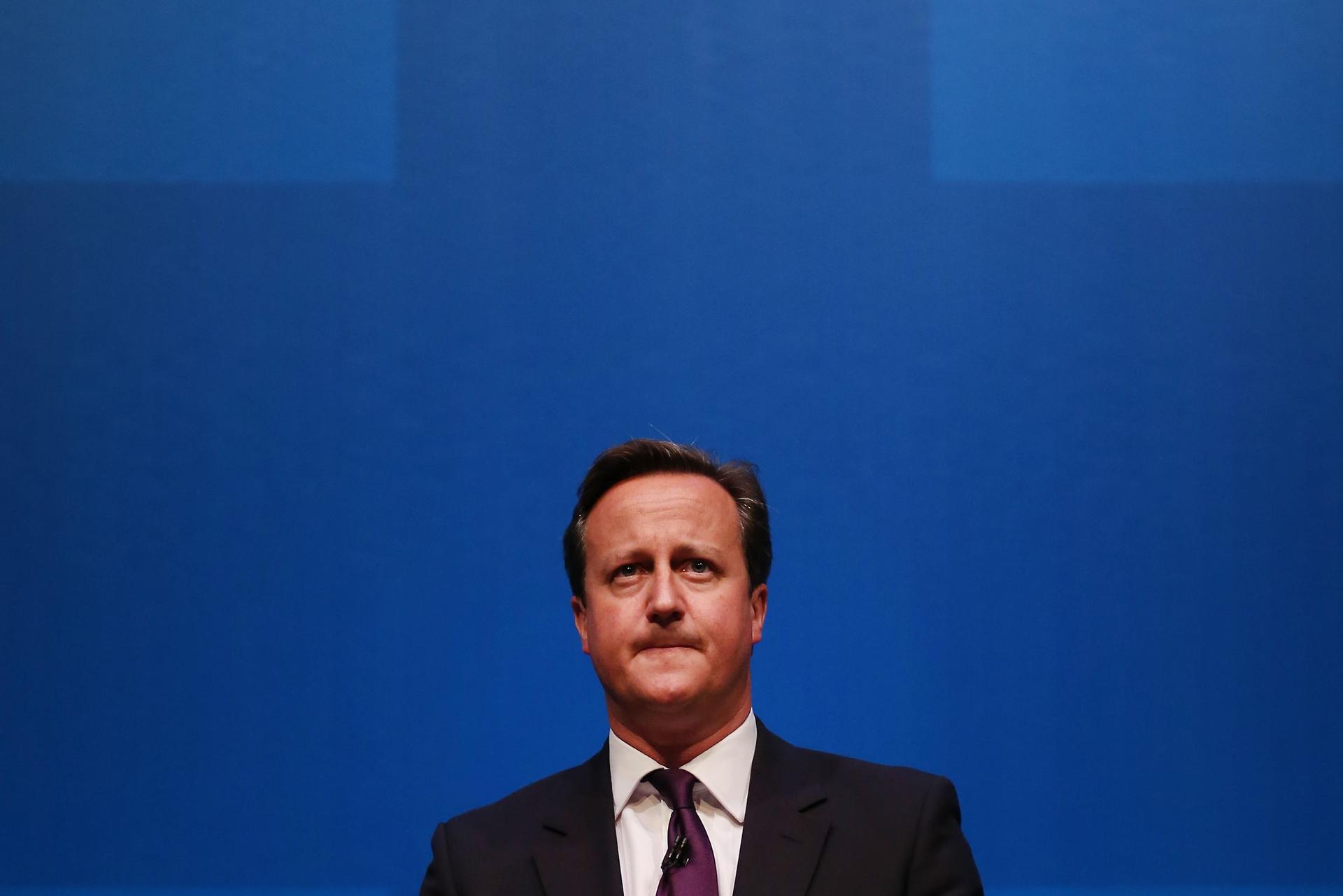As bombs fall in Syria, Britain inches toward war
Cameron wants to avoid the embarrassment of last year, when parliament refused to approve airstrikes in Syria.
LONDON, UK — As US-led airstrikes continued Tuesday against Islamic State targets in Syria, Prime Minister David Cameron was preparing for Britain’s reentry into combat in the Middle East.
He’s in New York, where he’s set to address the UN General Assembly tomorrow in a speech that could confirm what most here already suspect: the UK will join the attack against IS, albeit in limited form.
Cameron is expected to recall parliament as early as Friday to discuss British military involvement. The days until then will be spent building support among international partners and politicians at home.
The latter task is most crucial for what happens next. Cameron is keen not to repeat the frustration and embarrassment of last year, when parliament refused his request to approve airstrikes in Syria after President Bashar al-Assad apparently used chemical weapons.
IS, however, scares Britain in a way none of the Assad regime’s atrocities have.
Fifty-two percent of the public supports Royal Air Force involvement against IS in Iraq and Syria, according to a YouGov poll Sunday.
That number stood at 37 percent just a month ago. That was before the publicized beheading of British aid worker David Haines at the hands of an IS militant with a British accent, and the parading of two other UK hostages in IS videos.
“Jihadi John” — the name used in the British press for the black-clad, London-accented man who has appeared in recent videos of Westerners being killed — is a figure of loathing in the UK. While the militant's garb hides all but his eyes, it is suspected that the same man appeared in the several videos that showed three murdered Western hostages and a fourth British hostage named Alan Henning.
Some 500 Brits are believed to have traveled to Syria to engage with the conflict there. The prospect that some of them have joined IS and will bring their brand of violence back home has sold many Brits on military action.
Whether that translates to political support remains unclear.
Speaking at a Labour Party conference in Manchester Tuesday, opposition leader Ed Miliband said he supported the US-led strikes in Syria. He said the next step should be securing a UN Security Council resolution, a sign that Labour may be cautious of further military action.
Given the legal complexities of striking in Syria, which has not authorized the presence of foreign military, Britain will probably limit its involvement to northern Iraq, analysts say.
The UK has acted without legal authorization before, in Kosovo in 1999 and Iraq in 2003. But the bitter fallout from the latter war still smarts here, and Britain will be wary of another protracted war.
“We could do this today if we wanted,” says Shashank Joshi, a senior research fellow at the Royal United Services Institute. “The issue is when do we stop? The US has declared, correctly, that this is not going to be short-term.”
As a result, he adds, British military action would be likely be “calibrated, limited, conditional.”
Some voices have already been calling for more.
“Airpower is a major component of this to be sure, especially with the new weapons available to us,” former Prime Minister Tony Blair wrote on his foundation’s website.
“But — and this is the hard truth — airpower alone will not suffice. [IS] can be hemmed in, harried and to a degree contained by airpower. But they can't be defeated by it.”
More from GlobalPost: US launches airstrikes in Syria, kills at least 70 IS militants (LIVE BLOG)
Militants wasted no time in using US strikes to further their public relations goals.
Within hours of the bombings’ commencement on Monday, IS released a second video showing the British photojournalist John Cantlie, who was kidnapped in Syria in 2012.
He was presumably forced to read a message accusing Western governments of “hastily marching towards all-out war in Iraq and Syria without paying any heed to the lessons of the recent past.”
The video seemed to support the idea that the militants’ provocative public statements are intended to draw Western forces into armed conflict.
“I think it is entirely plausible that they understand the benefits they might reap from a sustained military campaign against them,” Joshi says.
Every day, reporters and producers at The World are hard at work bringing you human-centered news from across the globe. But we can’t do it without you. We need your support to ensure we can continue this work for another year.
Make a gift today, and you’ll help us unlock a matching gift of $67,000!
